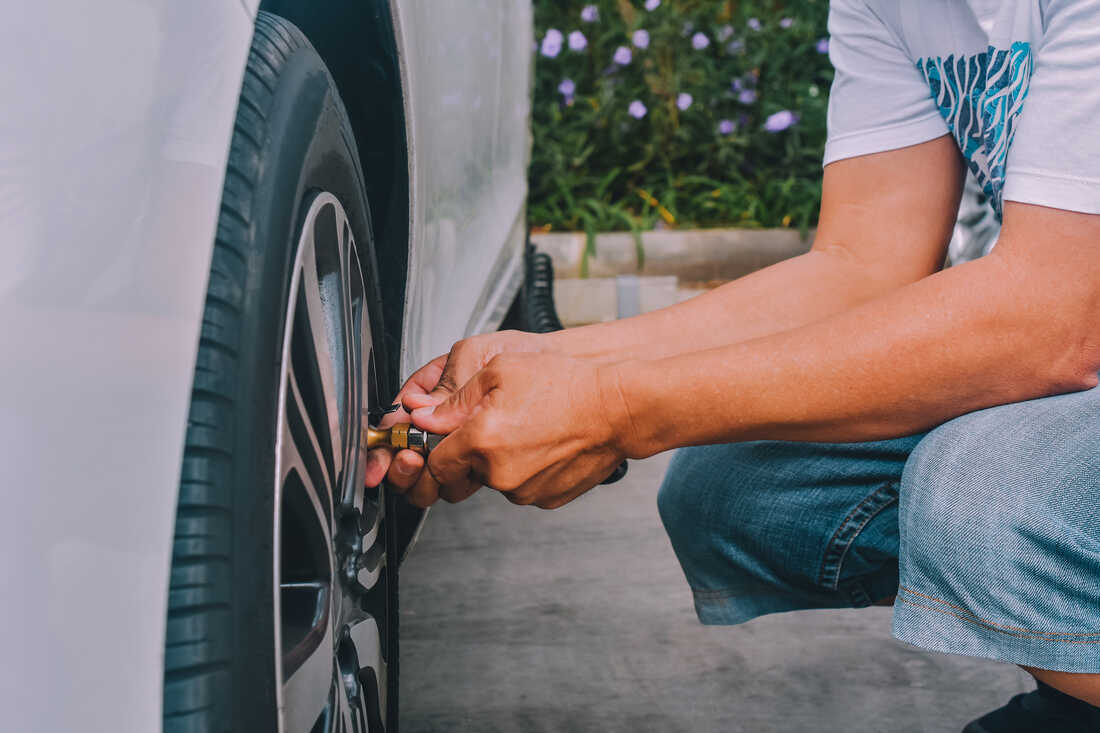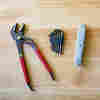The 4 DIY car maintenance tips every vehicle owner should know : Life Kit : NPR

Suriyo Hmun Kaew/EyeEm/Getty Images

Suriyo Hmun Kaew/EyeEm/Getty Images
Over the years, I (Gabrielle) have been an on-again-off-again car owner. I love the freedom having a car provides — I can run weekend errands quicker, visit my family more often, and get to doctor appointments with greater ease.
Public transportation nationwide remains grossly underfunded, so having a car is essential for many, especially those in rural areas. But with that freedom comes a whole lot of responsibility.
Regardless of my car ownership status, I’ve been consistently intimidated by the time, expertise and sheer cost of taking care of a car. Millions of Americans also know the struggle: according to the latest census data, more than 91{e3fa8c93bbc40c5a69d9feca38dfe7b99f2900dad9038a568cd0f4101441c3f9} of U.S. households have at least one vehicle.

Chaya Milchtein is the founder and creator of Mechanic Shop Femme, an automotive education company that helps women and LGBTQ+ people feel empowered to purchase and care for their vehicles. Whether you’re a first-time driver or a seasoned pro on the road, Milchtein has some great tips on how to become a more confident car owner and save money along the way.
Maintain your tire pressure, wipers and other basics
The number one reason to maintain your car is to keep it safe to drive. One easy way to keep your car safe? Maintain your tire pressure. (Watch one of Milchtein’s TikTok videos explaining how to check tire pressure below.)
The National Highway Traffic Safety Administration estimates that there are nearly 11,000 tire-related motor vehicle crashes annually, many of which could be prevented with some basic tire maintenance. “You should be still checking your tire pressure once a month,” Milchtein says, even if you have automatic tire pressure sensors.
Maintaining good tire pressure will also help you get better fuel efficiency, which is an added bonus especially when gas prices are high. Milchtein suggests setting an alarm once a month to check your tire pressure in the morning.
Beyond your tires, here’s a list of basic maintenance you can do on your own that will also keep your car safe, along with videos from Milchtein to help guide you through the process:
- Wiper blades: Change these every six months or so. If you’re not sure which ones you need, most auto parts websites can guide you based on your car’s make and model. Here’s how to replace them at home. Here’s how to replace them at home.
- Air filters: Check your air filters annually — especially if your car has more than 100,000 miles. Here’s how to quickly replace them.
- Oil levels: Check your oil monthly if you drive your car regularly and your car has less than 100,000 miles on it – or twice a month if it has more than 100,000 miles on it. “What you’re going to be looking for is changes in the level of the oil. So if the oil level is too low or sometimes if the oil level is too high, that’s something that would need to be addressed. You’re looking for any kind of major changes in color or consistency,” Milchtein says. Here’s how to check your oil in a one-minute video.
Just as important as knowing basic tasks you can do on your own is knowing when a task requires a professional: if your check engine light goes on, treat the issue seriously and take your car to the mechanic immediately. “Whatever it is, your car’s telling you, ‘This is an emergency right now,'” says Milchtein.
“Date” mechanics to find one you can go steady with
Think of finding a mechanic the way you would dating: you’ll want to try out a few shops to figure out what feels right, and then develop a relationship over time.
Make a list of two to four mechanics nearby who can conduct an oil change or a pre-road trip inspection. This is an opportunity to see how the mechanic communicates with you, if they treat you with respect and if they are willing to explain things that you don’t understand in further detail.

Just like debriefing with a friend after that first date, you’ll want to evaluate your meetings with mechanics. Ask yourself questions like, “How did I feel? Did they communicate with me in a way that felt honest? Were they able to explain to me which services had to be done right now and which ones could wait a little bit?”
Learn when it’s time to buy a new car
There’s a point when the time and money you put into a car won’t pay off anymore and it’s time to consider buying a new car. Assess whether your vehicle is safe to drive and whether replacement parts are available — they might not be for discontinued or older vehicles.
If “it starts to become harder and harder to find parts, it might make sense for you to start looking for a car at that point,” says Milchtein.
Another reason to consider a new car is to go electric: With gas prices and climate change on the rise, you’d be joining the 29{e3fa8c93bbc40c5a69d9feca38dfe7b99f2900dad9038a568cd0f4101441c3f9} of U.S. consumers who are interested in electric cars — myself included. But what about the accessibility of charging stations?

Milchtein says she hears about this all the time: “One of the biggest concerns that people have when it comes to electric vehicles is what we call ‘range anxiety,'” she says. In short, people are worried about running out of power. The good news is that the electric cars of today have a median range of about 250 miles – well above the average 39 miles Americans drive per day.
Whether you’re maintaining an old car or looking to buy a new one, remember, “People have been taking care of cars for generations,” says Milchtein, so you can, too!
Resources
In addition to resources like Mechanic Shop Femme, check out RepairPal, AAA and Girls Auto Clinic. Most importantly, Milchtein reminds drivers to return to the basics: the vehicle’s owner’s manual — it will always be a trusted resource to help you navigate your car.
The audio portion of this episode was produced by Sylvie Douglis. We’d love to hear from you. Leave us a voicemail at 202-216-9823, or email us at [email protected].
Listen to Life Kit on Apple Podcasts and Spotify, or sign up for our newsletter.